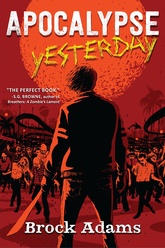While
the assertions by many genre fiction fans that literary fiction is dead or
dying are ridiculous, the fact that genre fiction has attained market dominance
is most certainly not. In fact, a 2014
report issued by the German Book Office (GBO) New York ranked fiction and
“Juveniles” in its top two for 2012 and 2013, adding that, “Fiction and
Juvenile genres continue to dominate the market, accounting for over 27 percent
of new titles and editions in 2013.” That trend has shown no signs of slowing
down either, especially considering the enormous popularity of fantasy-based
television programming and pop culture monoliths such as the San Diego
ComicCon.
With
the popularity of genre fiction has also come the inevitable feeling of
exaggerated importance on the part of those who feel responsible for its market
dominance; fanboys and fangirls. In case
you don’t know what those terms mean, the Oxford dictionary defines “fanboy” as
an informal derogatory regarding, “
A male fan, especially one who
is obsessive about movies, comic books, or science fiction.” The
definition is incomplete, however, as its compilers overlook the genres of
horror and fantasy. of all the genres mentioned
above. Yes, I have definite and sometimes emphatic opinions about how others
present my favorite characters and storylines.
However, as a writer who prefers to dwell in his own fictional universe,
I am forced to bring my adoration to a screeching halt several feet from the
border of irrationality so many fanboys (and girls) embrace as their
Information Age right.
Simply put, there are some real
nutters out there and they’ve got major buying power!
 Let’s be clear: There’s nothing
wrong with feeling a sense of ownership when it comes to a series of books and
its characters. One thing literary fiction readers will never understand is the
sense of community and we’re-in-this-together mentality of genre fiction. For many years, anything aside from
straight-forward fiction was relegated to second-class status, with a
smattering of works somehow rising “above” their perceived lower caste. Deceased authors of speculative fiction often
found themselves being “rediscovered” by those of a more literary bent, their
work now available in the fiction category. As an author of genre work, I get all
that. I really do. But that doesn’t excuse
the behavior so prevalent on message boards and social network sites.
Let’s be clear: There’s nothing
wrong with feeling a sense of ownership when it comes to a series of books and
its characters. One thing literary fiction readers will never understand is the
sense of community and we’re-in-this-together mentality of genre fiction. For many years, anything aside from
straight-forward fiction was relegated to second-class status, with a
smattering of works somehow rising “above” their perceived lower caste. Deceased authors of speculative fiction often
found themselves being “rediscovered” by those of a more literary bent, their
work now available in the fiction category. As an author of genre work, I get all
that. I really do. But that doesn’t excuse
the behavior so prevalent on message boards and social network sites.
A great-fanged beast has been
uncaged thanks to the perceived “power” on loan from the Web gods, and it is hell-bent
on devouring anything before it that dares not agree with its views. For those of us who seldom agree with them
but still like to think of ourselves as fans, that’s rather disheartening.
We might be a minority—although I
suspect we’re actually a silent, cowed majority— but there are those of us who
enjoy a good genre film or book and don’t feel the need to run around in
costumes or play roleplaying games. Some
of us see it as fun or even enlightening entertainment designed for social
commentary as well as thrills, still holding out hope that the stories being
told can help humanity grow and learn from its mistakes as well as its
accomplishments. Pleasant diversions
aside, the inmates are not merely running the asylum; they’re also running the
town outside its walls.
So, what does all this mean for
those of us toiling away to supposedly make a difference and, in our lofty
inner worlds, keep things elevated?
The first and most important thing
is to not allow any of that to sway us from our chosen paths. Much has been made in the creative fields of
not “selling out,” and while it’s a cliché, it would be a disservice to writers
everywhere to deny its inherent value as a sentiment. The very fact that you are contemplating the
consequences of doing it means there’s some level of integrity others might not
share. It also means you should stick to your guns and follow your heart and
several other horribly unoriginal sayings I refuse to employ in this sentence.
The fanboy might seem loyal and committed, but he is often
fickle and on the cusp of turning his back.
Last
year’s hot premise is this year’s mocked dying fad. Remember those sparkly vampires? How many imitators made a significant impact
on the publishing industry?
It
simply cannot be said often enough that a writer’s time is better spent
developing her own ideas rather than trying to create the next pop culture
event based on what’s already popular.
Don’t worry about pleasing the fanboys; if what you’re doing is
something they can claim they were into before it was cool, they will find you.
Remember:
They should be following you, not the other way around.

 "I have striven hard to open English eyes to the emptiness of Shakespeare's philosophy, to the superficiality and second-handedness of his morality, to his weakness and incoherence as a thinker, to his snobbery, his vulgar prejudices, his ignorance, his disqualifications of all sorts for the philosophic eminence claimed for him."
"I have striven hard to open English eyes to the emptiness of Shakespeare's philosophy, to the superficiality and second-handedness of his morality, to his weakness and incoherence as a thinker, to his snobbery, his vulgar prejudices, his ignorance, his disqualifications of all sorts for the philosophic eminence claimed for him."
 Let’s be clear: There’s nothing
wrong with feeling a sense of ownership when it comes to a series of books and
its characters. One thing literary fiction readers will never understand is the
sense of community and we’re-in-this-together mentality of genre fiction. For many years, anything aside from
straight-forward fiction was relegated to second-class status, with a
smattering of works somehow rising “above” their perceived lower caste. Deceased authors of speculative fiction often
found themselves being “rediscovered” by those of a more literary bent, their
work now available in the fiction category. As an author of genre work, I get all
that. I really do. But that doesn’t excuse
the behavior so prevalent on message boards and social network sites.
Let’s be clear: There’s nothing
wrong with feeling a sense of ownership when it comes to a series of books and
its characters. One thing literary fiction readers will never understand is the
sense of community and we’re-in-this-together mentality of genre fiction. For many years, anything aside from
straight-forward fiction was relegated to second-class status, with a
smattering of works somehow rising “above” their perceived lower caste. Deceased authors of speculative fiction often
found themselves being “rediscovered” by those of a more literary bent, their
work now available in the fiction category. As an author of genre work, I get all
that. I really do. But that doesn’t excuse
the behavior so prevalent on message boards and social network sites.

